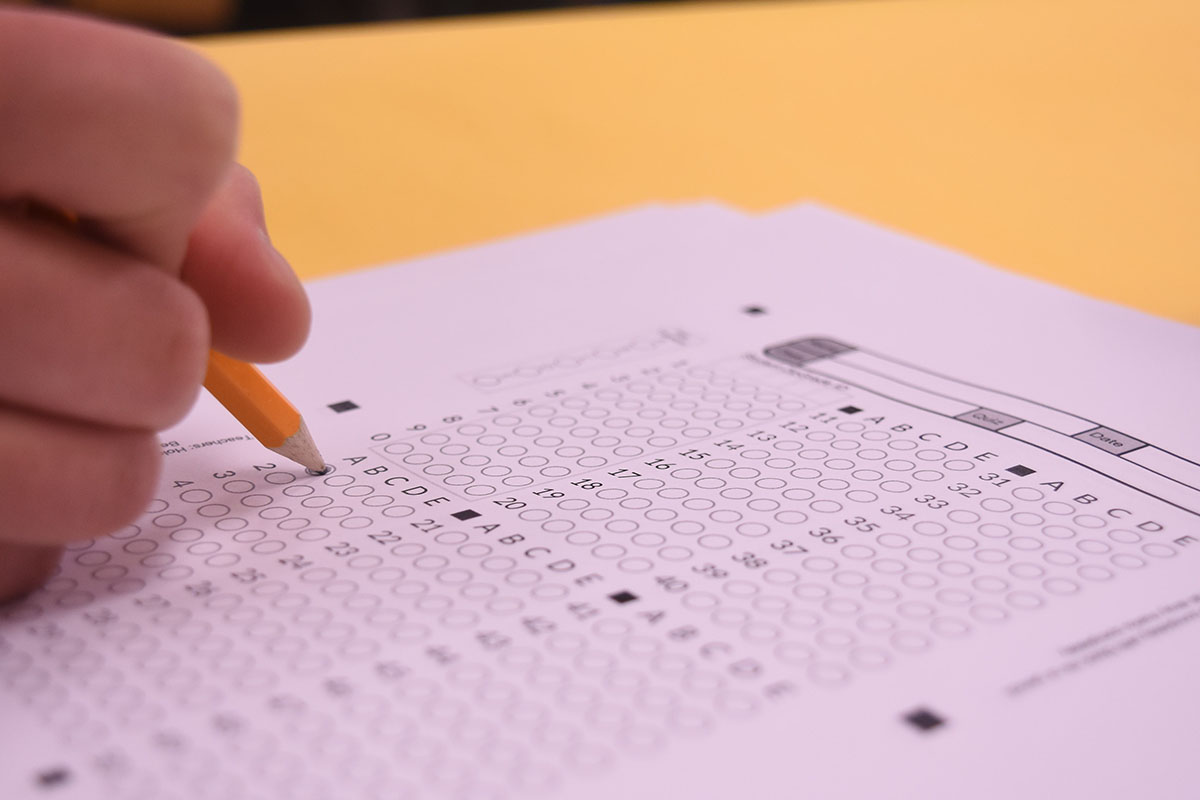inographic by Joy Park
After President Obama signed the Every Student Succeeds Act (ESSA) in December, state governments are now preparing for the long process of implementing the law, expected to take full effect in Fall 2017.
Lawmakers called ESSA an improvement over its predecessor, the No Child Left Behind (NCLB) act, that still maintains many of the educational goals established with NCLB. Among the changes are more flexibility in schools’ standardized testing schedules, less stringent accountability guidelines and more state control over educational standards.
For teachers like Advanced Placement World History instructor Greg Irwin, ESSA provides a welcome change from the “one size fits all” mindset NCLB put forth. A core principle of NCLB was that every student had to progress during the school year, hence the name of the law. This required schools to break down test data into subgroups in order to gauge the performance of minority students and ensure that all were meeting certain benchmarks, a goal many schools found unrealistic. Irwin sees ESSA as being more aligned with his teaching philosophy.
“The education that kids in Columbia get is different from the education in Hallsville, St. Louis or Kansas City. To pretend that everyone is the same–that’s just not reality,” Irwin said. “What I do like about [ESSA] is that you have a baseline of where every student is at the beginning of the year and your goal is to help them improve by like, one grade level. To me, that’s the ideal; if you can tailor a kid’s progress to where they are.”
While junior Amy Gu agreed that ESSA’s more individualized approach is beneficial, she raised some questions about how the new law would ensure that students in every state met certain standards, given that the act allocates more control to local governments.
“I think providing that kind of flexibility would be more helpful for the good of students,” Gu said. But it is the responsibility of states, so that means there won’t be a uniform standard, so not every state will standing on the same spot. It won’t guarantee that every state will be at a certain point or goal.”
Specifically, ESSA will greatly minimize federal control over curriculum structures, academic assessments and standards and administrator evaluations. Like Gu, greater state power does not sit well with Irwin, but for slightly different reasons.
“I’m not a huge fan of the Missouri state legislature, so I don’t trust their finger on knowing about education as much as I trust the national government,” Irwin said. “U.S. representatives are at a level of knowledge and competency that a state representative is just not. In that sense, more local control is a bit scary to me.
ESSA’s impacts may not materialize at RBHS for several more years, Principal Jennifer Rukstad said. She believes state departments are currently taking the time to assess the law’s fine print and how its language applies to their schools, much like what happened when NCLB first made its appearance.
“I won’t learn much about the impact of [ESSA] on [RBHS] for a while, because the Missouri Department of Elementary and Secondary education right now is probably scrambling to figure out what the law says about how we have to govern schools in Missouri,” Rukstad said. “We would see the impact, more than likely, in assessments.”
From there, the schools in each state could see varying degrees of ESSA’s influence. This disparity is because of the fluidity in how local governments, as opposed to the federal government, can interpret the law and decide how it should impact schools.
“The Department of Education doesn’t govern schools; they govern states,” Rukstad said. “Then it’s up to the states to make sure the law is followed in their state, which is why you see what seems like vastly different systems in every state.”
Though only time will tell, ESSA’s classification as a success or failure will come down to its effect on students. While Gu will likely graduate before ESSA goes into effect in Missouri, her kindergarten-aged little brother will be among the first wave of students to experience a new era in education. For him, she hopes the changes usher in more creativity and individuality in what can often seem like a ‘cookie cutter’ system.
“I wish that the [educational experience] would be a little than [lining to? I can’t understand this part. I’ll ask her tomorrow] everyday uses and practices,” Gu said. “Not necessarily looking for a certain answer to a question, but more open-ended, to demonstrate more the strengths and weaknesses of an individual.”
LATEST NEWS
- Stress, anxiety skyrocket as students prepare for upcoming AP tests
- RBHS holds successful night of percussion
- Not even water?
- Solar eclipse to pass through Missouri, April 8
- How CPS is organized: a guide
- City of Columbia to hold school board election April 2
- Youth Election Participants to assist in upcoming municipal election
- City of Columbia hosts first Community Engagement Session for McKinney Building, hopes to gain public insight on the structure’s future
- RBHS Track Team Opener at Battle Gallery
- March Mathness Photo Gallery
New law adjusts learning curriculum
January 29, 2016
Leave a Comment
More to Discover
@2021 - www.bearingnews.org



























































































